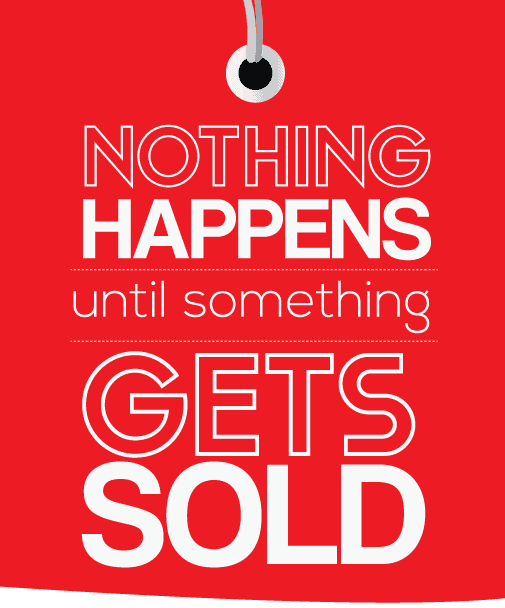Our Sales Philosophy
We're All Selling Something

A Definition of Terms
Selling isn’t some thing you do to someone, it’s something you do for someone. It can’t be defined by a single thought so here are three definitions that when taken together begin to express the full meaning of the term:
- Selling is helping people make decisions that are good for them.
- Selling is expressing your ideas from another person’s point of view.
- Selling is positive influence with people; it’s synonymous with leadership.
Everyone, in every line of work, has to “sell”. Job candidates “sell” themselves to be hired. Managers sell ideas to their superiors and their staff. Parents sell their kids on going to bed. CEOs sell strategic initiatives to their boards and yes, sales people and small business owners sell products and services to fulfill their visions, secure new clients and bring in much needed revenue.
Selling Is Influence. Selling Is Communications. Selling Is Leadership.
Five Pressures Affecting The Buyer Seller Relationship:
Shifts in how organizations, business leaders, and consumers make purchasing decisions have created immutable shifts in how sellers must go to market and interact with their customers and prospects. Being good at what you do is no longer good enough. Sales leaders must remain agile but more than ever, they need to listen, understand and communicate from the customer’s perspective. You must become a trusted advisor and deliver value at every touchpoint .


Unlimited Access To Information
Buyers today are armed with more information than ever before. With the sheer volume of content available, they do extensive research and attend sales meetings armed with opinions, preconceptions and often misconceptions as to what their need is and solution must be before they even begin a dialogue with you; leaving you to defend as commodity broker.
Unprecedented Volume Of Options
Buyers today also have an overwhelming myriad of available options at their disposal, which taken together with the overload of information can be outright confounding. Even simple decisions can become confusing which makes navigating alternatives to the best solution to a problem challenging.


Increased Distrust & Skepticism
A recent Gallup Poll revealed that a staggering 82% of respondents are suspicious of big businesses. The perception of greed, daily examples of corporate malfeasance & scandal and the sheer volume of advertising & marketing messages that bombard us has eroded our faith in open,truthful exchange. Trust has become our most valuable if not guarded resource.
Decreasing Loyalty
The combination of constant pressure to drive quarterly results, busy business people having to do more with less, and an ever-increasing number of stakeholders collaborating on buying decsions has weakened the the strength of personal bonds of loyalty.


New Virtual Realities
While reps are still grappling with common sales challenges, they’re now also faced with leading virtual conversations, collaborating online, gaining and keeping attention, leveraging technology, and delivering value. These are all challenging regardless of the selling and economic environment, but virtualization has exacerbated them.
What does this mean for building modern selling capabilities?
Use These 5 Factors To Your Advantage
Today’s buyer doesn’t want to be sold, they want a strategic advisor who can come alongside and understand not only their business but how what you sell impacts it. Today’s buyer is looking for a partner to help navigate the myriad of choices and to bring clarity & solutions to them. With the High Output Sales System, you’ll learn to lead masterful sales meetings both online and offline that build trust, grant influence and bring value to close sales and cement customer loyalty.